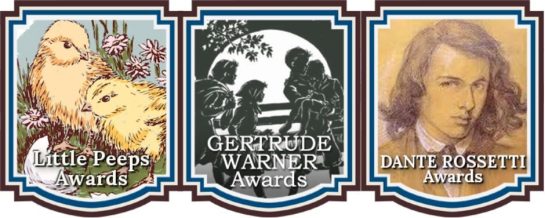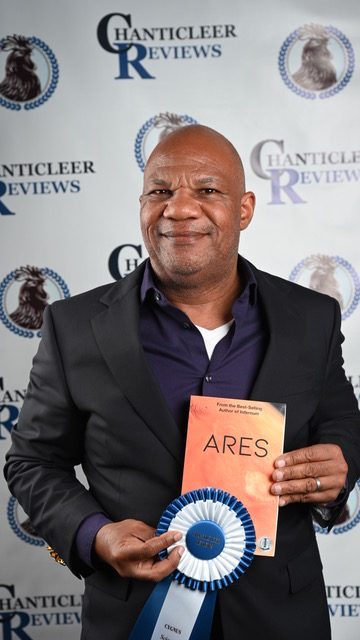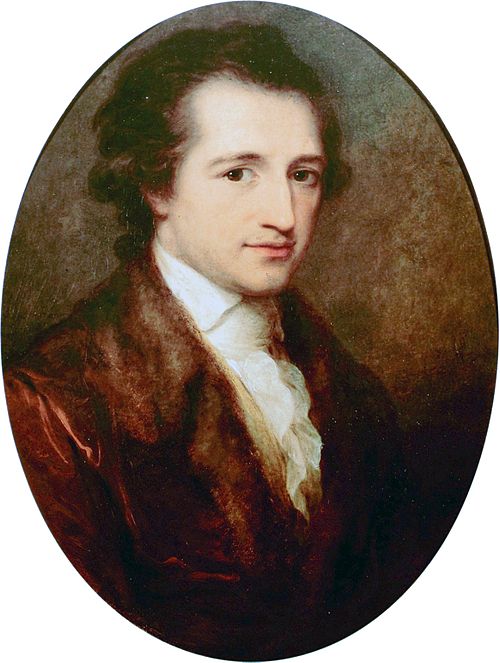
September is a month full of birthday celebrations for ten of history greatest literary giants!
September is filled with the birthdays of literary greats in a broad range of genres, from fantasy and sci-fi, children’s, romance, historical fiction, and horror. We celebrate these writers for their beautiful imaginations and incredible storytelling skill. Wherever you are in the world, their names are on the best novels you’ll find in bookstores and libraries. To celebrate this monumental month of literary greats we have put together these mini-bios to reflect on their achievements.
So, light the candles, pour yourself a glass of champagne and join us in a chorus of “Happy Birthday” for these amazing authors!
Leo Tolstoy
Born September 9, 1828, Leo Tolstoy is one of history’s most revered and influential writers. Born into the Russian aristocracy, he lived a life of privilege and power, first as a university student in Moscow, then as a lieutenant in the Crimean War. During this time, he wrote what is considered two of the greatest literary achievements in history, War and Peace (1869) and Anna Karenina (1878). After his military service ended, he retired to a country home where a spiritual awakening years later led him to write a literal interpretation of the ethical teachings of Jesus’s Sermon on the Mount in his nonfiction work entitled Confessions. Tolstoy became a fervent Christian anarchist and pacifist as a result of his spiritual journey, and his ideas on nonviolent resistance had a profound impact on such pivotal 20th-century figures as Mahatma Gandhi and Martin Luther King Jr.
D.H. Lawrence
September 11, 1885 gave us D.H. Lawrence, a fiery, fearless English writer who stirred up controversy with books like Lady Chatterley’s Lover, Sons and Lovers, and Women in Love. Lawrence wrote boldly about love, class, desire, and the inner lives of men and women, often challenging the norms of his time. His work was sensual, psychological, and deeply human, so much so that it was banned more than once. But Lawrence believed in the power of raw emotion, personal freedom, and reconnecting with nature in an increasingly industrial world. A restless traveler, he wandered from England to Italy, Australia, and beyond, chasing inspiration and escaping censorship. Critics were divided, but his influence is undeniable. His work cracked open doors for modern literature and never quite closed them again.
 Roald Dahl
Roald Dahl
Born in Wales on September 13, 1916 to Norwegian parents, Roald Dahl grew into one of the world’s most beloved storytellers. His real life was as colorful as his characters. He flew fighter planes in WWII, invented medical devices, and penned children’s stories with a wicked sense of humor and a sense of danger camouflaged inside a child’s paradise. Dahl’s books, like Charlie and the Chocolate Factory, Matilda, James and the Giant Peach, and The BFG, are packed with clever kids, awful adults, and magical twists. He had a talent for mixing dark comedy with heart, creating worlds where the underdog always wins, and often in the most unexpected ways. Beyond children’s books, he also wrote macabre short stories for adults and screenplays, including Chitty Chitty Bang Bang. With his sharp wit and imagination, Dahl redefined children’s literature, making it a little weirder, a lot more fun, and endlessly memorable.
Agatha Christie
The indisputable “Queen of Crime” Agatha Christie was born on September 15, 1890 in Devon, England. As mysterious as the characters that populated her stories, Christie continues to be one of the best-selling authors of all time, even fifty years after her passing. She crafted clever mysteries with plot twists that keep readers guessing, and her iconic detectives, brainy Belgian Hercule Poirot and sharp-eyed Miss Marple, have solved everything from country house murders to exotic crimes on the Orient Express. Christie wrote sixty-six novels, fourteen short story collections, and the world’s longest-running play, The Mousetrap. Known for her razor-sharp plotting and surprise endings, she made murder feel like a game, one that readers love to play. Enigmatic even in her own life, she once caused havoc by disappearing for eleven days during a particularly difficult period of her life. Today, she’s left a literary empire with countless film adaptations and has changed a genre forever through her genius for suspense and misdirection, challenging readers to find out “who done it.”

Upton Sinclair
Born on September 20, 1878, Upton Sinclair became an American writer, muckraker, and social crusader who proved words could change the world. He’s best known for The Jungle (1906), a gut-wrenching novel about the Chicago meatpacking industry that shocked readers and led to major food safety reforms. But that wasn’t all! Sinclair wrote over ninety books, tackling everything from corrupt politics to education, religion, and the press. A lifelong advocate for workers’ rights, socialism, and justice, he ran for office several times and never stopped pushing for reform. His writing wasn’t subtle, but that was the point: Sinclair wanted to wake people up. Whether exposing greed or championing the underdog, he used his pen like a sword, cutting through hypocrisy with fearless energy.
George R. R. Martin
George R.R. Martin, the mastermind behind A Song of Ice and Fire, was born on September 20, 1948. His epic fantasy saga inspired the worldwide sensation HBO’s Game of Thrones and redefined the fantasy genre. Known for killing off fan favorites and weaving sprawling, morally complex plots, Martin blends medieval grit with political intrigue, dragons, heartbreak, and vendettas. Before his success with his five-book series, Martin wrote sci-fi, horror, and TV scripts, including episodes of The Twilight Zone, earning a loyal cult following. With rich world-building and a knack for the unexpected, Martin’s work stands out for its realism and well-fleshed out characters that take you from heartbreak to hope and back again.
H.G. Wells
The “Father of Science Fiction,” H.G. Wells was born on September 21, 1866 to a shop keeper and domestic servant in Kent, UK. He set out on the path to become an author at the age of eight when a broken leg left him bedridden and he began reading voraciously during his convalescence. His writing was influenced by Plato‘s Republic, Thomas More‘s Utopia, and the works of Daniel Defoe. He often referenced Mary Shelley’s Frankenstein in relation to his own works and the genre he’s credited with inventing, science fiction. An apt comparison with works that include The Time Machine (1895), The Island of Doctor Moreau (1896), The Invisible Man (1897), and The War of the Worlds (1898). Wells is an expert in delivering horror through science fiction themes.
Stephen King
Stephen King, the prolific American author best known for his work in horror, suspense, and supernatural fiction, was born on September 21, 1947, in Portland, Maine. He has published over sixty novels and two hundred short stories, many of which have become cultural touchstones. His most famous works include Carrie, The Shining, It, Misery, and The Dark Tower series. King’s writing is known for its vivid characters, psychological depth, and ability to tap into primal fears. Many of his books have been adapted into successful films and TV series, and he has won numerous awards, including the National Book Foundation Medal for Distinguished Contribution to American Letters. Despite his success, King remains grounded, often writing about ordinary people confronting extraordinary circumstances. His impact on modern fiction is immense, earning him the title “King of Horror.”
F. Scott Fitzgerald
Born September 24, 1896, F. Scott Fitzgerald became a literary rockstar of the Jazz Age, an age his writing helped to define through his novels. Born in St. Paul, Minnesota, he shot to fame in his twenties with This Side of Paradise, a novel so fresh and bold it made him an overnight sensation. He lived fast, wrote beautifully, and enjoyed all the so-called “Golden Era” had to offer alongside his dazzling wife and muse, Zelda. Fitzgerald captured the glitz, glamour, and heartbreak of the 1920s in his classic The Great Gatsby, a timeless tale of love, ambition, and lost illusions. Though his later years were marked by struggle and fading fame, his work only grew in stature after his death. Today, he’s remembered as the voice of a Lost Generation, a designation he coined, that chased the sparkle of dreams only to see them quickly vanish into oblivion.
 William Faulkner
William Faulkner
Southern literary legend and Nobel Prize-winning author William Faulkner was born on September 25, 1897 in Mississippi. Known for his bold style, complex characters, and deep dives into the human psyche, he built an entire fictional universe, Yoknapatawpha County, where generations of flawed families, haunted by history, tangled with time, memory, and decay. His novels The Sound and the Fury, As I Lay Dying, Light in August are famously challenging, with stream-of-consciousness narration and timelines that are packed with emotional power. Faulkner explored the South’s troubled legacy with brutal honesty and lyrical depth, influencing generations of writers. While he also wrote screenplays in Hollywood, his heart was always in literature—messy, raw, and unforgettable. His work may not be a breezy read, but it rewards those who dare to enter his strange, brilliant world.
Award-winning recognition isn’t reserved for only the biggest names!
Do you want to see how your novel stacks up next to other authors’ work? Enter the Chanticleer International Book Awards (CIBA) to compete with some of the best emerging authors we’ve seen this year!
Does your book have what it takes? Join the authors who have taken the leap to have their work professionally vetted by one of the industry’s most respected awards programs. Each stage of the CIBA journey, from entering the Award to finding your eventual tier of achievement, is worth crowing about and celebrating with your following. Whether you’re an established author with a dedicated readership or a writer with a manuscript hoping to improve your chances of catching the right publisher’s eye, the CIBAs are well-worth the effort! Our multi-tiered advancement process ensures that every qualified entry receives multiple opportunities for recognition and promotion throughout the year.
The CIBA Difference: Real Impact on Author Success

Chanticleer International Book Awards (CIBAs) recognition creates the “award-winning author” credentials that help books stand out in competitive markets. Our 28 divisions across fiction and non-fiction categories provide multiple opportunities for recognition that bookstores and customers value.

Enter your Children’s, Middle Grade, or Young Adult book today!
In an increasingly crowded book marketplace, professional vetting and third-party recognition have never been more important. The Chanticleer International Book Awards have established themselves as a trusted source for identifying excellence in independent and traditionally published books across genres. When readers, bookstore owners, and industry professionals see the CIBA seal on your book, they know it has been thoroughly evaluated and stands among the best in its category.
Your book deserves to be discovered.
Enter the Chanticleer Int’l Book Awards today!

Don’t Delay! Enter Today!
Have questions about which division is right for your book? Contact us at info@ChantiReviews.com, and our team will be happy to help guide you to the perfect match for your work.


 Roald Dahl
Roald Dahl





 William Faulkner
William Faulkner










